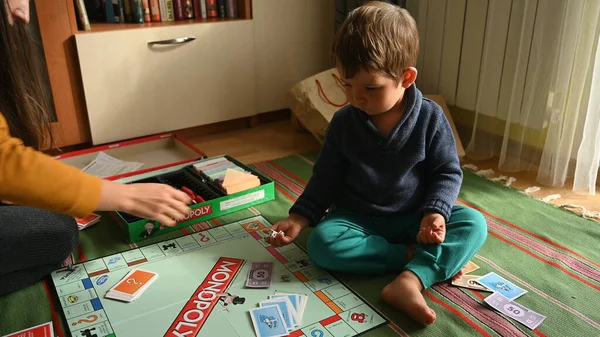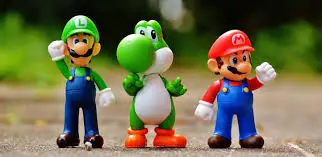We most often see that kids hate maths as they find it difficult. Why do they find the subject difficult? It’s because they can’t enjoy it. Meanwhile, monopoly has come with interesting steps and rolls that make kids bound to love math. Now you may think, how monopoly can help your kids practice math?
Firstly, you should allow your kid to play this game only when he is more than 8 years. Besides, this board game teaches us how to handle money, make best use of money, etc. And trust me all the steps here include calculations which in turn make kids interested to practice math. It’s bevause they are not doing it for getting any marks, but to relate to the real world.
How Monopoly Can Help Your Kids Practice Math
It’s true that monopoly teaches kids about money and transactions, but here, the base is mathematics. Side by side, it involves multiplications, decimals, percentages, and so on.
Process Of The Game
Let’s first start with the theory of monopoly. We usually begin the game by selecting any property from the shuffled cards. Whatever the property you choose, you have to make a payment for it. Now you will obviously have less cash than before, and now the two players have to start the game with that cash.
Your game ends when you become bankrupt after making lots of transactions. If you are not declared bankrupt yet, but your rival players are, you win.
Calculations
Now you will say where is maths in this game? You will obviously roll the dice to proceed the game. This will tell you how many numbers you have to add up. Then you have to pay bills according to the game, pay cash for your property, give change to other players, and many more.
Let’s say your child is the landlord and you are the tetant in the monopoly board game. You are to pay him $34 as rent, but you paid him $40. Now he has to make a calculation and give you a change of $6. You can also make him do a higher calculation. Let’s say the rent is $215, but you paid him $365. Now he has to give you $150 back. In the real world, we usually don’t make calculations in pen and paper when we receive money or give money for giving or getting a change. You must teach your child that he can’t consume the time to make calculations. He will be ought to make the calculation faster. He will make mistakes first in the initial stages of the game, but then he will be a pro after some matches for sure.
Well, there is more to discover in monopoly in terms of maths and numbers. For example, your kid will roll the dice, then he has to add numbers, and move the spaces. Besides, he has to be quick in deciding values. Like he is renting one of his houses for $50, so for two houses, he has to set the value to $100. Then he will see digits on cards, which is going to be four digits maximum. Side by side, he has to deal with financial literacy, like counting by 10s, 100s, 500s, etc.
Percentages
Another mathematical calculation in monopoly will include percentages. For instance, your rule book says, you have to pay 10% income tax from what you possess. Your kid needs to understand the calculation. If he owns $300, he is to pay $30 as income tax. Sometimes, he has to calculate through decimals as well. Let’s say he owns $355, now he has to pay 10% of it as income tax, i.e. $35.5.
Financial Literacy
As said before, monopoly includes maths as a base for its financial literacy. Now let’s focus on the financial literacy in this game. Suppose your kid purchased a property, and let’s say its purchase price is $160. Here, he may have to use notes, like one $100 and three $20s. Another example can be, you gave your kid $40 although the rent he charged is $36. Now what he has to do is give you four cash of $1 back.
Your kid is going to realise the values of the properties as he need to make the best decision. This includes the decision making for purchasing a property, ordering money to avoid messy piles, and so on.
Multiplications
How can we miss the importance of multiplication while playing monopoly? There will be a point when your champ is going to possessa a set of properties. In that case, he may have to double the price, especially when he is charging for two same properties. For example, the rent of one of his hotel is $24. So for two hotels, he is to charge $48 by applying the rule of multiplication or doubling. But when he will charge for three same properties with same price, he must apply the rule of multiplication, i.e. by 3.
Conclusion
I think the game monopoly gives endless benefits to kids, especially when they need focus on maths. Apart from maths, they relate to the idea of investments, interest, mortgage, bankruptcy, saving, etc in an early age. Don’t worry if he make mistakes constantly during this board game. He is too novice to handle the financial literacy. But all we can say is he will be a pro in math when he will do calculations daily. And the interesting part is, every step here, includes mental mathematics. So just imagine how good he is going to be at math once he grab the monopoly board game!



